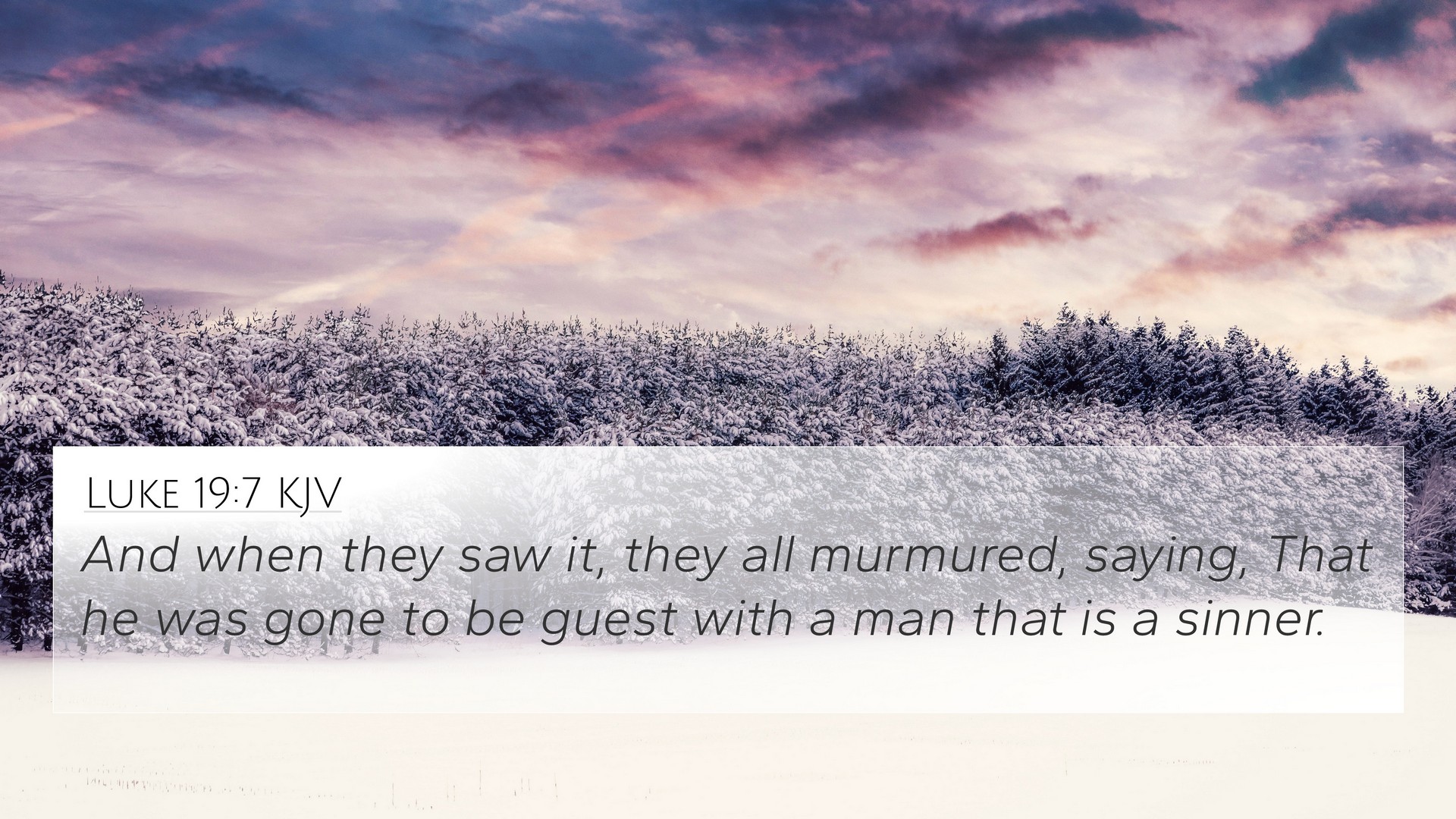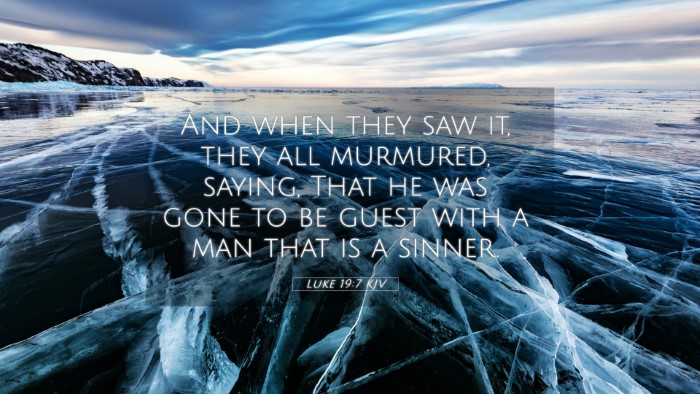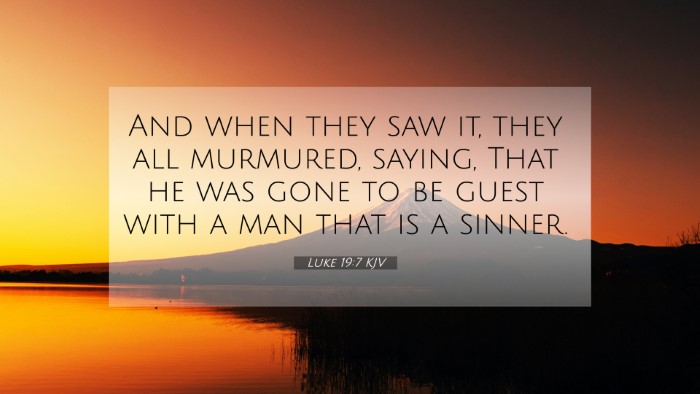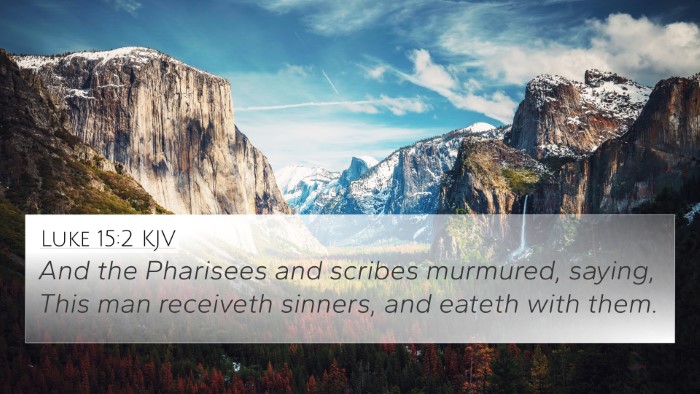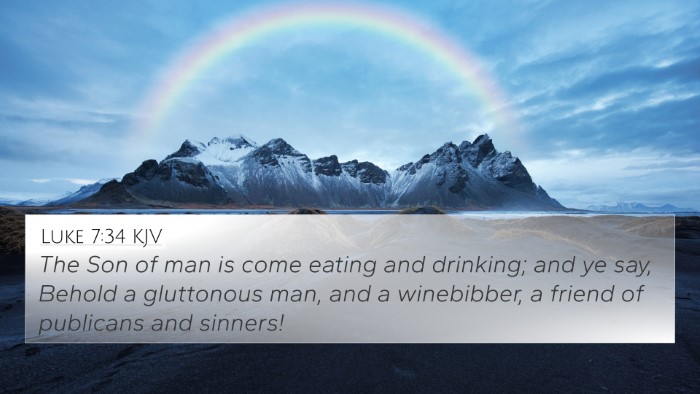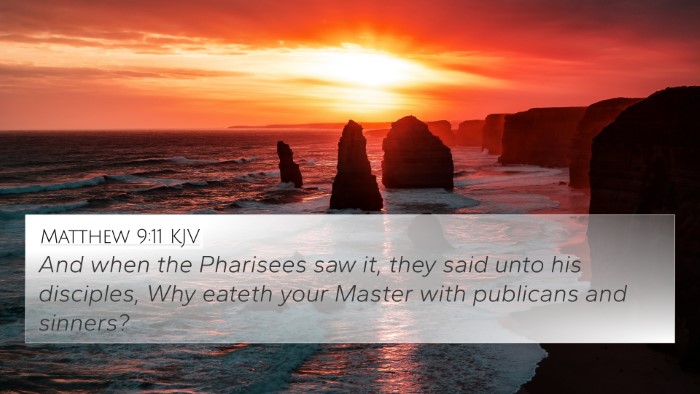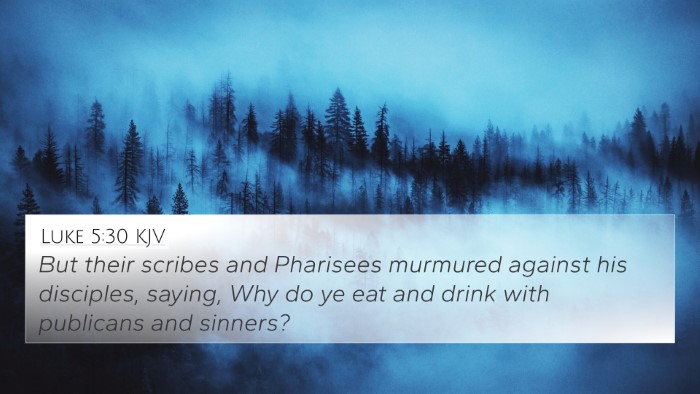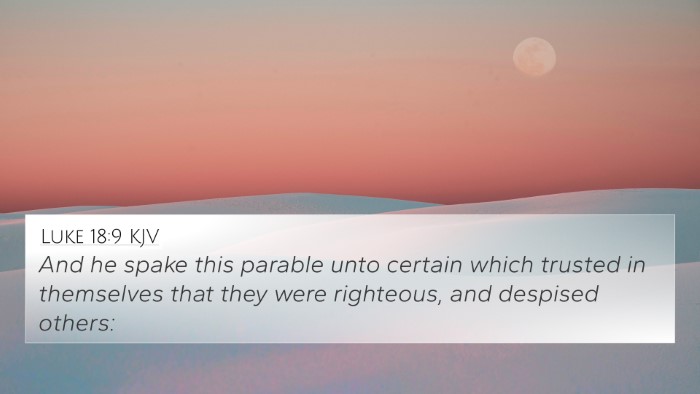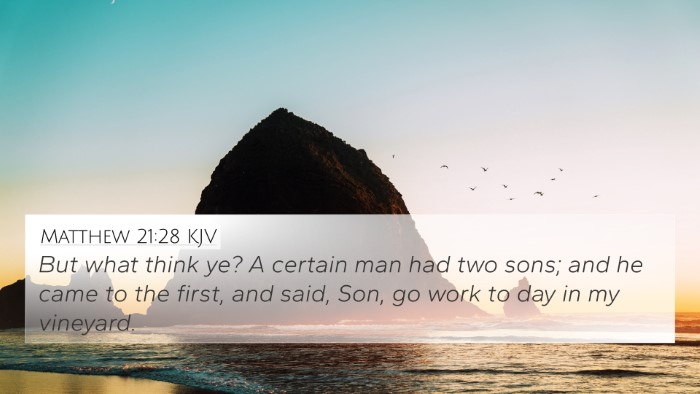Understanding Luke 19:7
Luke 19:7 states, "And when they saw it, they all murmured, saying, He is gone to be guest with a man that is a sinner." This verse captures a moment of criticism directed at Jesus for associating with Zacchaeus, a tax collector considered an outcast and sinner by society. Here, we explore the meanings, themes, and connections linked with this verse through public domain commentaries, particularly those by Matthew Henry, Albert Barnes, and Adam Clarke.
Exegetical Insights
The primary reaction of the people serves as a reflection of societal norms about sin and righteousness. By choosing to associate with a known sinner, Jesus breaks the barriers of social stigma, thereby demonstrating the nature of God's grace. As Matthew Henry notes, "Christ has a regard for sinners and will, through his grace, release them from the bondage of their transgressions." This reflects the deep-rooted theme of redemption found within the Gospel.
Thematic Connections
- Grace and Acceptance: This theme is central as the murmurers express their judgment while Jesus extends acceptance.
- Jesus’ Mission: The intent to seek and save the lost is an underlying motive in Luke's narrative.
- Response to Criticism: Jesus represents a model of humble service in the face of social ostracism.
- Transformation: Zacchaeus's life changes radically because of his encounter with Jesus, embodying the transformative power of divine grace.
Cross-References
Luke 19:7 can be cross-referenced with the following verses that explore related themes:
- Matthew 9:10-13: Illustrates Jesus dining with sinners and calling them to repentance.
- Luke 15:1-2: Highlights Jesus' association with tax collectors and sinners prompting the Pharisees' discontent.
- John 8:7: Jesus responding to the accusers of sinners, emphasizing mercy over judgment.
- Romans 5:8: God's love displayed through Christ dying for us while we were still sinners.
- 1 Timothy 1:15: Paul identifies himself as the foremost of sinners, showcasing the reach of God's mercy.
- Matthew 21:31: Jesus proclaims that tax collectors and harlots are entering the kingdom ahead of the self-righteous.
- Luke 5:32: Jesus states He came not to call the righteous, but sinners to repentance.
Comparative Analysis
To further understand the context of Luke 19:7, one can perform a comparative Bible verse analysis by looking at other narratives where Jesus interacts with those marginalized by society. Adam Clarke remarks on the hypocrisy prevalent among the people who criticize Jesus, as they fail to recognize their own need for grace. This situation places a spotlight on the broader biblical message of redemption offered to all sinners.
Conclusion
Luke 19:7 serves not only as a moment of confrontation but also as a powerful statement about Jesus' mission and the heart of God towards sinners. The murmuring crowds represent every person who grapples with the concept of grace versus judgment. This moment in Scripture encourages believers to examine their own perspectives on sin, righteousness, and divine acceptance.
In studying this verse, utilizing tools for Bible cross-referencing such as a Bible concordance or cross-reference Bible study guide can provide deeper insights into its meaning and context. Understanding how Luke 19:7 fits into the broader narrative of the Gospels contributes to a richer theological discourse and spiritual growth.
